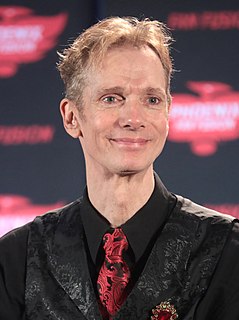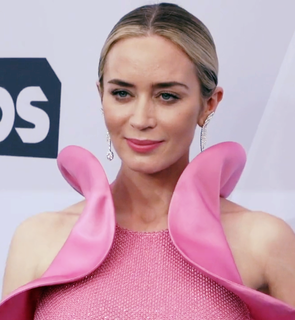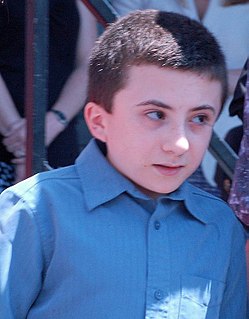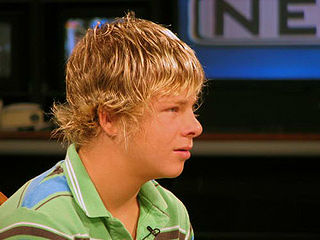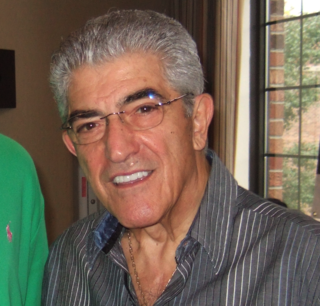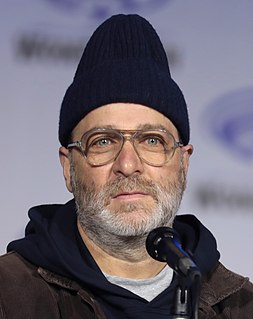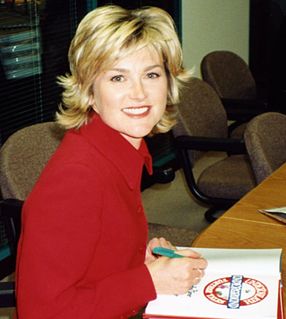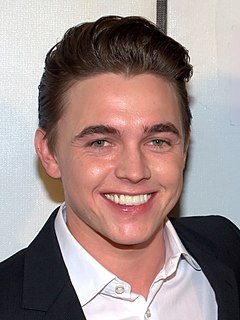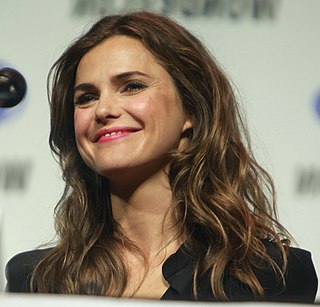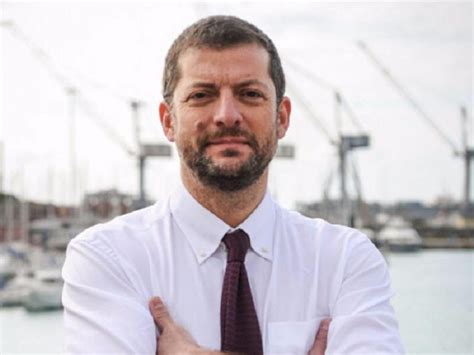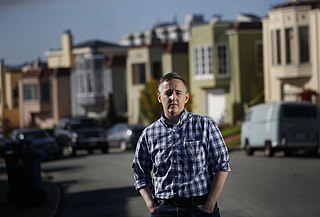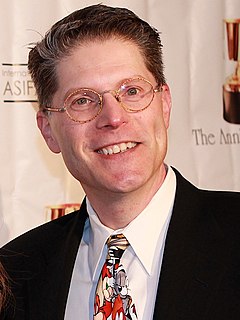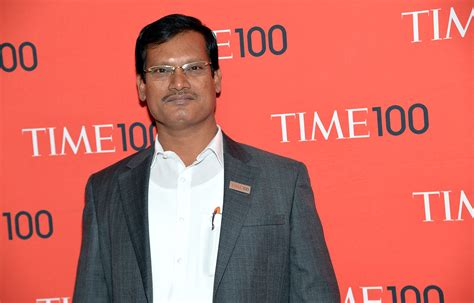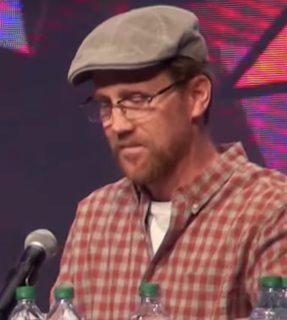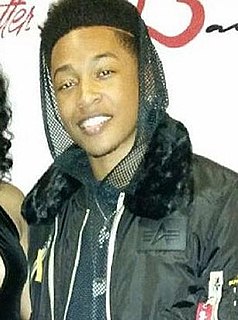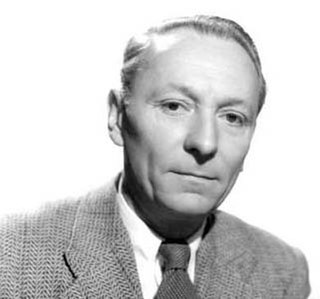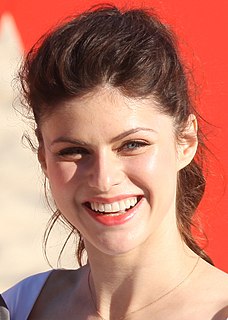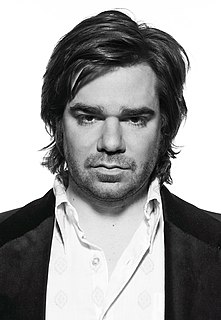Top 102 Voiceover Quotes & Sayings - Page 2
Explore popular Voiceover quotes.
Last updated on April 22, 2025.
My mom thought I might be good for voiceover. She thought I had a cute voice, so maybe I could do a cartoon or something. And while we were looking into that, we also thought I should get into theater acting, so I tried it and the first audition I went on, I booked it. And it kind of just snowballed from there.
Like every normal person, I hate my voice. And I am not the only one who hates my voice. The voiceover gets a lot of strong reactions. A lot of people love it, and a few people truly hate it and pronounce the films are unwatchable because of my Latvian accent. But it also has a certain level of theatricality, and everything is important for a manic character.
After 'The Wonder Years,' I ended up having a voiceover career, which was something I never even knew was possible. But after the character I was playing on 'The Wonder Years,' people said, 'Oh, would you like to do a Burger King thing? And there's a 7 Up thing...' And then I got to do 'Dilbert.' I think my voice kind of fit for that.
I never feel there's anything I can't do with comics. There are certain things in comics that you can't do in any other medium: for instance, in Mister Wonderful, Marshall's narration overlaps the events as they're going on. That would be difficult in film; you could blot speech out with a voiceover, but it wouldn't have the same effect. That's always of interest, to see what new things you can do in comics form.
Often, there is a job - say, for a voiceover or an appearance - and you think: 'Blimey!' From the outside it would seem like you are being paid a lot for a short amount of your time. It would be inappropriate to share how much they pay, but in the industry we call it 'doing a bank raid'. Unfortunately, those jobs do not happen every week.
Stand-up can take you in so many different places, man. So many doors can be opened up from stand-up comedy, and the first one that was opened up for me was acting. But you can go from acting to being a TV personality to being a radio personality to being a writer to being a producer, to just being a visionary, to voiceover work.
It's a fun show, BoJack Horseman to do, and that gets around. It's easy, especially for a lot of actors who don't do a lot of voiceover. No makeup, no wardrobe, they really just come in, the lines are right there, we goof around for a half hour, and I think it feels like, "Oh, yeah, this is why I got into this business: to play around and have some fun." There's no paparazzi, most of them don't do any promotion for the show. it's the fun part of acting, without the other stuff.
I like doing voiceover work. I just like it in general, because you're constantly working on a very first-instinct level. You show up, you get in front of the microphone, you look at the lines, you say the lines, and then you move on. You work on a really primal level, is what I'm saying. You don't have to shave. You don't even have to wear pants. But, uh, that wasn't your question.
I've been making 16mm urban landscape films about San Francisco for many years. I choose different nonfiction themes to investigate and am generally interested in surfacing lesser-known histories. I like to investigate and illuminate these histories, combining them with my own unconventional storytelling style, which is generally a stream-of-consciousness voiceover involving a steady stream of personal reflections on pining over unavailable women.
I don't audition for "on-air" commercials - the ones where your face can be seen. I've auditioned for voiceover campaigns that I haven't gotten, but I don't really want to be seen in a commercial unless it's a product that I really love. Like, if Adidas asked me, I would do it in a heartbeat. But I did a Reebok commercial, one for Pep Boys, one for Dunkin' Donuts. I auditioned for commercials, but I really couldn't stomach it. It just didn't feel right.
I always looked up to great actors and great films. A lot of my family would be like, 'Come on, you should get into these plays that are going on.' I'm like, 'Nah, nah, music's my thing.' I just fell into it. I moved to Atlanta, got with an agency out there, started doing little voiceover commercials, and it started getting kind of fun.
I'd heard of Evergreen Care Center before. Cass and I had always made fun of the stupid ads they ran on TV, featuring some dragged-out woman with a limp perm and big, painted-on circles under her eyes, downing vodka and sobbing uncontrollably. "We can't heal you at Evergreen", the very somber voiceover said. "But we can help you to heal yourself." It had become our own running joke, applicable to almost anything. "Hey Cass, "I'd say, "hand me that toothpaste." "Caitlin," she'd say, her voice dark and serious. "I can't hand you the toothpaste. But I CAN help you hand the toothpaste to yourself.
The voiceover thing is very selfless. You go in there and they've hired you for your voice, but they know exactly what they want, and the writer's there and he knows exactly how it's supposed to be said. So you can't really argue with them, you just have to let them tell you what to do and then do it.
I don't like the strictly objective viewpoint [in which all of the characters' actions are described in the third person, but we never hear what any of them are thinking.] Which is much more of a cinematic technique. Something written in third person objective is what the camera sees. Because unless you're doing a voiceover, which is tremendously clumsy, you can't hear the ideas of characters. For that, we depend on subtle clues that the directors put in and that the actors supply. I can actually write, "'Yes you can trust me,' he lied." [But it's better to get inside the characters' heads.]
